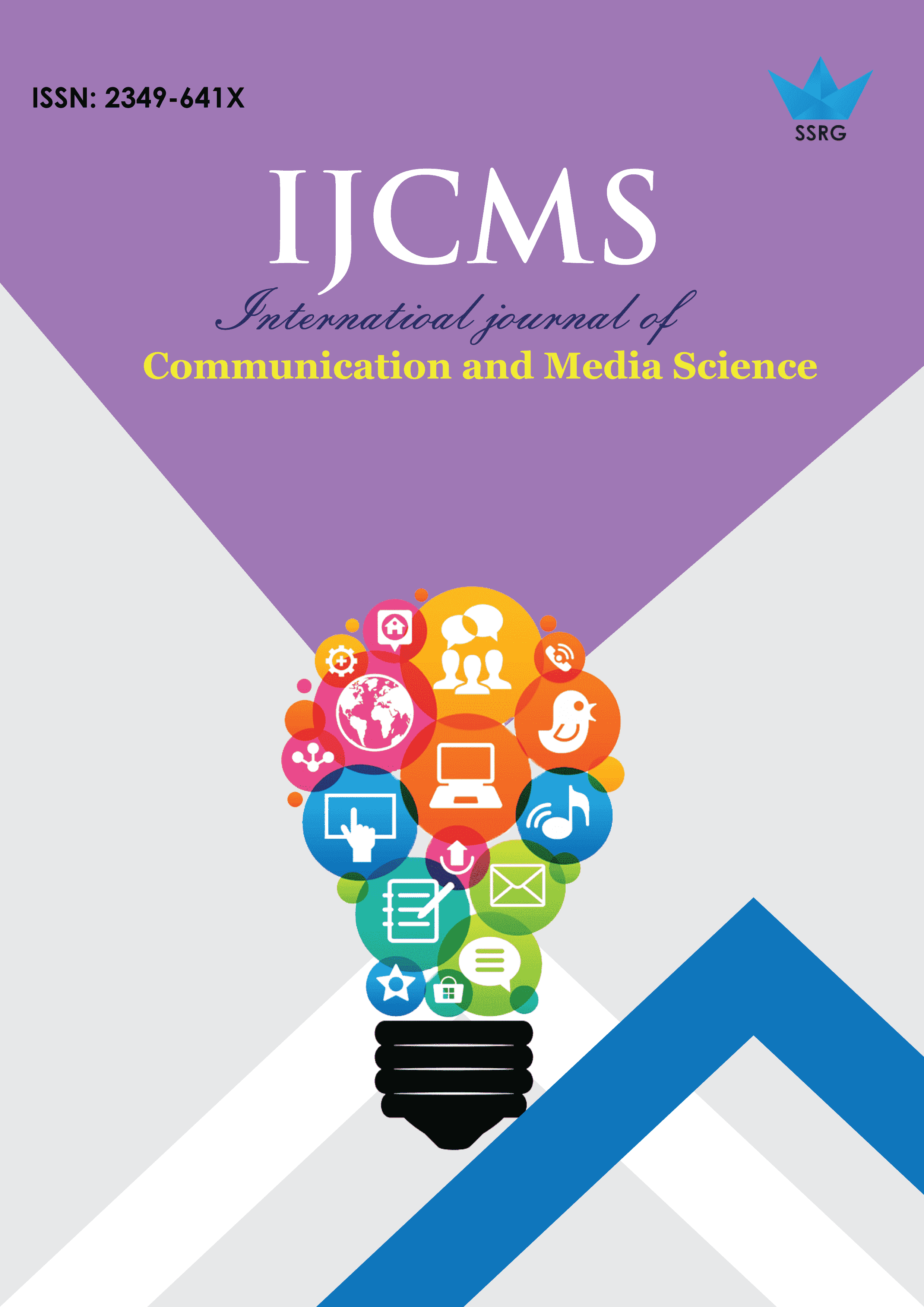Communication and Cognation; Analyzing the Semantic and Pragmatic Meaning of Salaam in Interpersonal Communications among Afghans

| International Journal of Communication and Media Science |
| © 2019 by SSRG - IJCMS Journal |
| Volume 6 Issue 3 |
| Year of Publication : 2019 |
| Authors : Abdul Wahab Rahimi |
How to Cite?
Abdul Wahab Rahimi, "Communication and Cognation; Analyzing the Semantic and Pragmatic Meaning of Salaam in Interpersonal Communications among Afghans," SSRG International Journal of Communication and Media Science, vol. 6, no. 3, pp. 34-39, 2019. Crossref, https://doi.org/10.14445/2349641X/IJCMS-V6I3P106
Abstract:
The everyday greeting and interpersonal Communication in Afghanistan start with the word of Salaam, which means; peace and safety be upon you.
The word of Salaam is derived from the word of Islam, which has been quoted more than 40 times in the Holy Quran. The comprehensive meaning of Salaam in the whole Quran, to explore the message of peace, safety, and humanity. The study was guided by two questions; what is the semantic meaning of Salaam in the Afghan community? What is the Pragmatic meaning of Salaam in the Afghan cultural community? This study employed
The Relevance theory and the inferential model of communication. Based on this model, the study analyzes interviews with 40 Afghan students either face to face phone call conversations in the Communication University of China in Beijing, from 1 June to 31 June 2019. Findings of this study show that the semantic meanings of Salaam were to make an agreement for the rest of the conversation and making a peaceful and safe environment. Moreover, goodbye, friendly massage to others, leaving the conversation, lovely massage, and sending secret massage were the pragmatic meanings
of Salaam in the Afghan cultural community. The result of the study further shows that the implicature mean of Salaam is in the context of the word.
Keywords:
Afghan community, Salaam, semantic, pragmatic, interpersonal communication.
References:
[1] Aban, a. (2010). Salaam. Paigah Atla Rasanai Hauza(109). Retrieved from https://hawzah.net: https://hawzah.net/fa/Magazine/View/2689/6605/77103/%D8%B3%D9%84%D8%A7%D9%85
[2] Alex S, C., Joeph S, F., & Matovic, D. (2013). Can negative mood improve your conversation? Affective influences on conforming to Grice's communication norms. Eropean Jornal of Social Psychology, 1-13.
[3] Dictionary, K. (n.d.). Dictionary of KML. Retrieved from www.dictionary.com: https://www.dictionary.com/e/slang/assalamu-alaikum/
[4] Evason, N. (2019). Cultural Atlas. Retrieved from https://culturalatlas.sbs.com.au: https://culturalatlas.sbs.com.au/afghan-culture/greetings-0ef9d005-fadc-4962-a6b6-f6415c8913d4
[5] Fatima, Z. (2016, Dec). Humor, Satire and Verbal Parody in The Hitchhiker’s Guide to the Galaxy: A Relevance Theoretic Approach. NUML Journal of Critical Inquiry, 14(2222-5706), 38-53.
[6] Matovic, D., Alex S, K., & Forgas, J. (2014). Can negative mood improve language understanding? Affective influences on the ability to detect ambiguous communication. Journal of Experimental Social Psychology, 44–49.
[7] Pars, B. r. (2018). Abaseen. Retrieved from https://dictionary.abadis.ir: https://dictionary.abadis.ir/fatofa/%D8%B3%D9%84%D8%A7%D9%85/
[8] pen, P. ( 2010, OCTOBER 26 ). United Religions Initiative. Retrieved from https://uri.org: https://uri.org/uri-story/20101026-etymology-salaminsight-
arabic-word-peace
[9] Qarzawi, U. (2011). the Importent Ilements of mind. Kabul: Islah Afkare.
[10] Sperber , D., & Wilson, D. (1996). Relevence; Communication and Cognatio. Cambridge: Blackwel.
[11] Tanha, A. (2009). the roll of Salam in greeting culture in Afghan society. Awashtune(7), 21.
[12] Tauhid, A. (2018, 2 3). Afkar News. Retrieved from www.afkarnews.com: https://www.afkarnews.com

 10.14445/2349641X/IJCMS-V6I3P106
10.14445/2349641X/IJCMS-V6I3P106